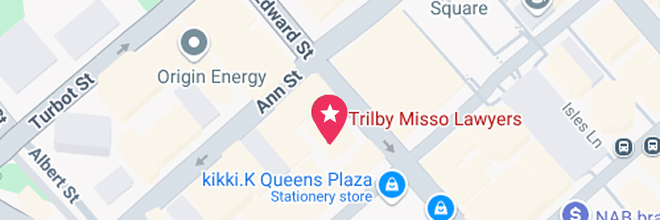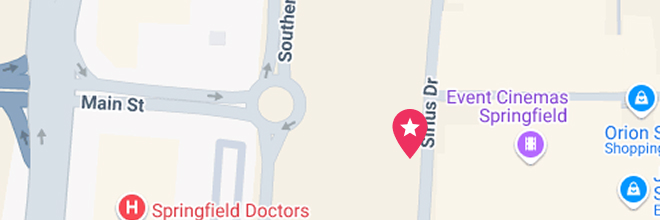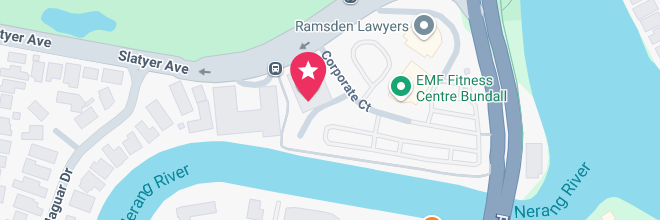What are my rights if I’m injured at work?
When a worker in Queensland is injured in connection with work, they are protected by the fact that employers must hold WorkCover insurance. Another option for employers is to be self insured. Regardless, as a worker in Queensland, you can take comfort that your employer will have insurance in the unfortunate event that you are injured.
An injured worker has rights to:
- make a claim for compensation
- choose your own treating doctor
- have all personal information kept confidential
- have a representative for any meeting to talk about your claim
- have an interpreter or advocate
- be consulted about your rehabilitation and get a copy of your suitable duties plan
- get advice before sign
A common concern is that the injured worker will be sacked because they are injured or because they have made a WorkCover claim. You can’t be dismissed for making a workers’ compensation claim. You can’t be dismissed within 12 months after having an injury solely because you are unfit for employment because of the injury.
Knowing your rights is important in such a stressful time. If you are unsure of your rights, or something just doesn’t feel right, we recommend seeking the advice of an injury lawyer who can advise you about your specific circumstances.
“Do I have a claim?”
Use this simple online tool and find out if you have a claim in less than thirty seconds. You can choose to remain anonymous.
What types of compensation can I claim for a workplace injury?
Following a workplace injury, there are two types of claim a worker can make:
- Statutory WorkCover claim
- Common Law claim
Statutory WorkCover claim
Statutory WorkCover benefits offer some excellent short term assistance to an injured worker. Workers have the comfort of knowing they have access to:
- Weekly benefits – wages while you are unable to work;
- Treatment – medical treatment related to the injury, this can even include retraining.
- Lump Sum Compensation – if your injury is assessed as being permanent, you may receive an offer of Lump Sum Compensation.
These statutory benefits are paid as long as the worker can establish that they were injured in connection work. Fault is not a factor to consider in this type of claim.
Common Law
A common law claim is a claim for compensation beyond the weekly, upfront, statutory benefits. A common law claim looks at the worker’s injury, age, employment, ability to work in the future, and future medical needs.
To succeed in a common law claim the injured worker will need to establish they were injured in connection with their work, like a statutory law claim, but they will also need to establish fault on the part of the employer. Fault, or negligence, can be alleged against the employer for different reasons ranging from a failure to provide adequate training to not maintaining equipment properly.
The common law compensation is payment of money to try, as best as can be done, to put the worker in the position they would have been in if the accident didn’t happen.
How do I start a Workers’ Compensation claim after a workplace injury?
After a workplace injury your first concern should be seeking appropriate medical treatment. For more serious injuries an ambulance may be called to the scene and for injuries that don’t require immediate intervention, you might make an appointment to see your local GP.
To start a workers’ compensation claim, we recommend you take the following steps:
- Report the injury – your employer may have procedures for reporting injuries and you should follow that process. In the absence of any formal reporting procedures, we recommend reporting the incident to your supervisor. If there is a written report, ask for a report for your own records.
- Witness details – if there were witnesses to the accident we recommend noting their contact details. Sometimes they aren’t required for 12 months, and it can be difficult to track people down if they change jobs.
- Work capacity certificate – you will need a work capacity certificate from your medical provider. A work capacity certificate is a type of medical certificate that sets out details of your work related injury, what treatment is recommended and whether you require time off work.
- WorkCover Application – WorkCover requires you to lodge a claim for statutory benefits. This can be done online or over the phone.
A workplace injury lawyer can always assist with these steps and guide you through the process.
What medical evidence do I need for a workplace injury claim?
The medical evidence you need for a workplace injury will vary as the claim progresses through various stages.
Initial medical evidence – to make the initial application for WorkCover statutory benefits you will require a medical practitioner, most likely a GP, to complete a Work Capacity Certificate. The Work Capacity Certificate will address:
- Details of your injury
- The connection between the injury and your employment
- Your ability to work
- Recommended treatment
Finalising the statutory claim – when your injury is deemed to have made the maximum medical improvement, that is that it is stable and made the best recovery it will make with available treatments, your injury may be assessed for permanent impairment. A specialist doctor will be asked to assess the injury and review the available medical notes detailing the treatment given.
Common law claim – in a common law claim, a worker is required to prove any claims they make. This means, it is up to you to provide the evidence to support your claim. It will be important that medical evidence be gathered to prove the following:
- Details of the injury
- Establishing the injury is connected to employment
- Medical treatment given to date
- Medical treatment recommended for the future
- Assessment of permanent impairment
- Impact of the injury on enjoyment of life
- Impact of the injury on ability to care for yourself
- Impact of the injury on the ability to work now and in the future
A specialist workplace injury lawyer will be well skilled in gathering this important evidence to help substantiate your claim.
How long do I have to file a Workers’ Compensation claim after being injured at work?
If you are injured at work and want to file a Workers’ Compensation claim, there are important time limits you should be aware of. If you fail to lodge a claim within the timeframes it can result in your claim being denied.
The first type of benefits you may want to claim are Statutory Benefits, by making this claim, you will have access to some short term help. If this claim is accepted you will be entitled to weekly payments if you are unable to work as well as the cost of any recommended medical treatment. It is a good idea to access these benefits as soon as possible so that you can minimise the financial stress of not working and access necessary medical treatment as soon as possible. This claim should be lodged within 6 months of the injury date.
If you are injured at work and your employer is at fault, you may consider making a common law claim. A common law claim is a longer term solution where you are compensated financially to attempt to put you in the position you would have been in, had the accident not happened. There is a strict 3 year time limit for this type of claim.
If you want to file a workers’ compensation claim and believe you are outside the time limits, it is recommended you speak with a lawyer to check if anything can be done to protect your rights.
We recommend acting quickly in these matters so that you can access the financial support to allow you to focus on your recovery. By acting early it is often simpler to contact witnesses and gather evidence about the accident and how it happened.
What is the role of a lawyer in a workplace injury claim?
When you engage a lawyer in your workplace injury claim they act for you and your interests. By engaging a lawyer, it means you can focus on your recovery and have peace of mind that the injury claim is being taken care of by an expert in that field.
Workplace injury lawyer will fulfil the following roles:
- Give advice – the lawyer will advise you on all matters relating to your workplace injury claim. This will range from advising on the process, what evidence to gather, the timelines, your prospects of succeeding and the likely outcome of your claim. Your role is to give instructions, the lawyer can not make decisions for you, they will advise you and make recommendations, but any decisions are yours to make.
- Gather evidence – the workplace injury lawyer will know what evidence you need to successfully present your claim as well as how to source that evidence. Evidence that the lawyer will gather will include things like medical reports, income documents, witness statements and expert medical opinion.
- Claims lodging – the workplace injury lawyer will know what procedures and time lines relate to your specific circumstances. They will work to ensure that any claim forms are completed correctly and fully detail your losses as well as making sure they are lodged in the relevant time frames.
- Protect your rights – an experienced workplace injury lawyer will ensure your right are protected.
- Negotiate on your behalf – at the appropriate time your workplace injury lawyer will advise you on the likely outcome of your case. They will advise on your prospects of winning the case as well as the likely dollar outcome. You will then be in a position to give your lawyer instructions to negotiate and either accept or reject any offers that are made.
Knowing that a lawyer is taking care of these matters and protecting your rights can give a real sense of relief at an already stressful time.
What happens if my Workers’ Compensation claim is denied?
Approximately 95,000 of Workers’ Compensation claims are lodged each year and on average, 4% of those are denied. Approximately 3% of claims are reviewed and 59% of those uphold the initial decision to deny the claim, 41% are successful on review.
Common reasons for a Workers’ Compensation claim being denied are:
- The injured person was not considered to be a “worker” in the legal sense;
- The injury was not connected to work, or outside work hours;
- The injury was not reported to the employer;
- The claim was lodged outside the required timeframe being 6 months from the date of injury;
- The accident did not happen in Queensland;
- Where a psychological injury is sustained, it is common for WorkCover to establish that the employer took “reasonable management action” and deny the claim.
If your workers’ compensation claim is denied, there is a strict three month period to have the decision reviewed. Many workers do not have the decision reviewed or miss the three month period, even though they may have been successful on review. We recommend having the reasons for denial reviewed as soon as possible so that you can have the decision reviewed within the 3 month period.
Can I claim compensation if my work injury was partly my fault?
Where you might be partly at fault for a work injury, you may still be able to claim compensation for a workplace injury even if you were partly at fault. The fact you are partly at fault will not preclude you from making a claim for statutory WorkCover benefits, however it will be considered in a common law claim.
Fault in a Statutory WorkCover claim
Queensland operates under a no-fault Workers’ Compensation system, which means you can receive statutory WorkCover benefits, regardless of fault. Statutory benefits offer some excellent immediate, short term assistance like:
- Weekly benefits while you are unable to work; and
- Medical expenses.
Fault in a Common Law WorkCover claim
If you seek damages beyond the Statutory WorkCover benefits and make a common law claim, you must establish your employer is at fault. Your degree of fault may affect the compensation paid.
If you are found partly at fault, it won’t necessarily preclude you from making a claim. Being partly at fault is called “contributory negligence”. Any award of compensation would be reduced by the percentage you are found to have contributed. For example, if you are found to be 20% at fault, your compensation would be reduced by that percentage.
Consulting with a lawyer can help clarify your entitlements and the potential impact of shared fault on your claim.
“Do I have a claim?”
Use this simple online tool and find out if you have a claim in less than thirty seconds. You can choose to remain anonymous.
How is the compensation amount determined for a workplace injury?
‘How much is my claim worth?’ is a very common and natural question to ask. How much compensation you will receive will depend on careful assessment of your specific circumstances and the supporting evidence. Compensation in a Statutory workplace claim and a common law claim is calculated using a different methodology.
Compensation Amount in a workplace injury Statutory Claim
In a statutory WorkCover claim, wages and medical expenses are simply calculated. Any Lump Sum Offer of compensation is made on an assessment of the permanent impairment of the injury. WorkCover will refer to a scale that will calculate a Lump Sum Offer depending on the injury code and percentage of impairment. A Lump Sum offer is not calculated by looking at your specific circumstances and the impact of the injury on your life and ability to work.
Compensation Amount in a workplace injury Common Law Claim
Calculating the compensation amount in a workplace common law claim is an expert skill an injury lawyer will be highly trained in.
The lawyer will assess your claim and give you advice on the likely amount that would be awarded if you proceeded to trial before a Judge. In assessing the likely compensation amount, the evidence will be examined with the following in mind:
- Pain and Suffering – this is an amount of money to compensate you for the fact you have an injury and the impact that has on your enjoyment of life. This will be assessed looking at the nature of the injury and to what degree it is permanent.
- Medical Treatment – your medical expenses to date and predicted medical treatment for the future will be a sum that is included in any compensation amount.
- Lost income and superannuation – your lost income to date and also predicted lost income in the future is an amount that will be calculated and included in a compensation amount.
- Care and assistance – in some cases you can include a claim for assistance you have required as a result of the injuries sustained.
Accepting any offer of settlement has the consequence that your right to claim is over and you can not come back for further compensation at a later time. We strongly recommend you seek expert legal advice from a workplace injury lawyer before accepting any offer of settlement.
What should I do if my employer pressures me not to file a Workers’ Compensation claim?
If your employer is pressuring you not to file a Workers’ Compensation claim, we strongly recommend seeking legal advice to help navigate this process.
It is also important to note:
- Your employer is insured with WorkCover, any claim will be made on the insurance, not against the employer directly.
- You require medical treatment and should not be prevented from accessing treatment that could see you have a better recovery.
- If your employer says they will help you directly, how long will they honour that promise?
- It is unlawful for an employer to terminate your employment within 12 months of sustaining a workplace injury.
Page author
This page was written by Kathryn MacDonell, CEO at Trilby Misso Lawyers.
Kathryn’s journey in the legal field began in 2001 at Trilby Misso as an Article Clerk, leading to her official admission into the Supreme Court of Queensland in 2005. Her career at Trilby Misso saw her rise to the position of Principal Lawyer by 2011, where she was responsible for leading teams across the Sunshine Coast and Brisbane. Despite her management responsibilities, Kathryn remained dedicated to securing compensation for her clients, driven by a passion for assisting Queenslanders. Her legal acumen has been showcased in numerous challenging cases, with her making appearances in the District Court, Supreme Court, Court of Appeal, and even the High Court of Australia.
Here’s how our ‘no win no fee’ process works:
-
We chat
 It’s a free consultation.
It’s a free consultation. -
We meet
 A free detailed discussion.
A free detailed discussion. -
We plan
 You say ‘go’ – we build your case.
You say ‘go’ – we build your case. -
We lodge
 We present
We present
your case. -
We conclude
 We reach a settlement.
We reach a settlement.
You pay nothing until you win
We’ll also provide certainty and clarity, with a fair structure that has no ‘uplift’ fee, ever. You’ll pay nothing ‘til your claim is won.
Don’t delay. Speak with Trilby Misso today.
Your next step is a small one. All you need to do is give us a call on 1300 730 845 or complete this form here to arrange a quick chat.
During this initial conversation, we will:
- Have a chat about the circumstances and nature of your injury.
- Give you an indication of your eligibility to make a claim for compensation.
- Explain, in simple terms, how our process works. We will answer
any questions you have about fees, the legal process, and anything else you’re unsure about relating to your injury.
We understand that taking legal action can be stressful, and we’ll do all we can to ease your concerns.
The chat can take place at our place, your place, or by phone. There is no cost, no pressure, and no obligation.







